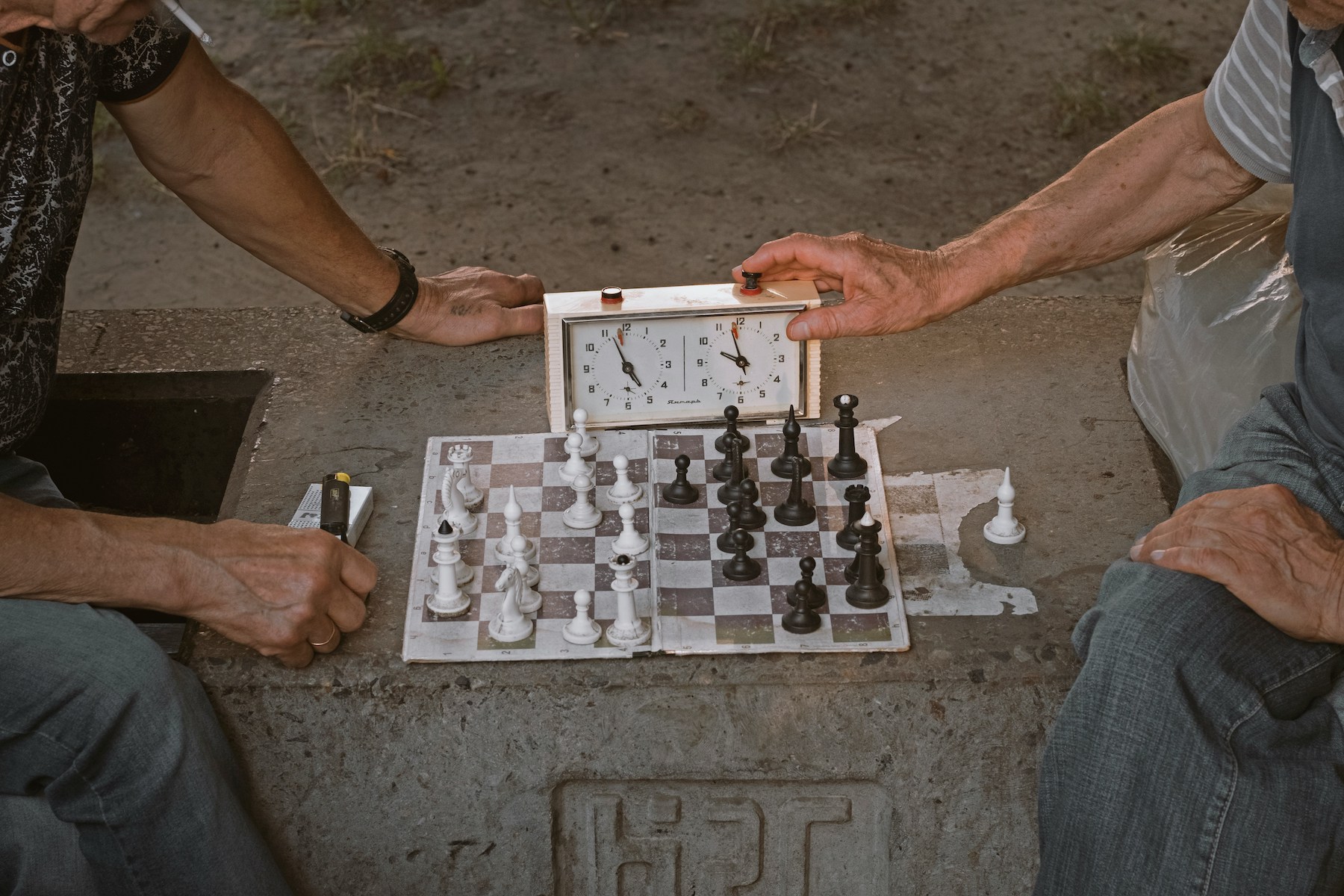The first time I played Don Emilio, I was wearing my school uniform and trying to act like I wasn’t completely terrified of the man.
He sat there in his usual seat—back straight, sleeves rolled, espresso going cold. The chessboard was already set up. He didn’t look at me, not really. Just moved his hand toward the black pieces and gave this tiny, almost invisible nod.
I sat down before he could change his mind.
I think I lasted seven moves.
No exaggeration. Seven. He opened with something classical—I don’t even remember what. Maybe an Italian or Ruy Lopez. Doesn’t matter. I brought out my queen on move three like an absolute cretin and grinned like I’d just outsmarted a wizard. He sighed—loudly—and started muttering something about children and sacrilege.
Then he checkmated me so fast it felt like teleportation. Genuinely. One minute I was planning world domination, the next I was staring at a board where my king had nowhere to run, nowhere to hide, nowhere to even feel slightly safe. It was surgical. Cruel. Beautiful.
I said “good game” and got up to leave.
“Sit down,” he said. First time he’d ever spoken directly to me. “You don’t learn anything from walking away.”
So I sat.
That was three years ago. Now we play most afternoons. I still lose, but I lose… better. Slower. More thoughtfully. And sometimes—just sometimes—I draw. Once, I won. It was a blunder on his part. He claimed it was the sun in his eyes. There was no sun. We were indoors.
Still counts.
Chess wasn’t supposed to be my thing. I stumbled into it like most things in my life: by accident and in need of somewhere to hide. Home’s loud. School’s worse. And I don’t do parties. I like rules. Patterns. The idea that if I make good decisions, I get good results. Chess gives me that. Life… not so much.
Don Emilio says the board never lies. I think he means that as comfort, but it also feels like a threat. You can’t fake it on those 64 squares. You can pretend to be confident in school, or act like you’re not hearing your parents fight through the bathroom door. But chess? It doesn’t care. You bluff, you die. Simple.
We played yesterday. I made it to move 28. He played the King’s Indian. I tried something sharp and aggressive. I failed. But at least I had a plan. I’ve started logging my games now, trying to analyze my mistakes instead of just feeling bad about them.
He noticed.
“You are improving,” he said, sipping his bitter little coffee like he hadn’t just torn my entire queenside to shreds. “You think before you panic now.”
That might be the nicest thing anyone’s said to me this year.
Attackers may somtimes regret bad moves, but it is much worse to forever regret an opportunity you allowed to pass you by.
I didn’t mean to start this blog. But after that game, I went home, opened my cracked laptop, and just started typing. Something about the way he said it—the way he made my blunders feel like progress—it made me want to remember it.
So yeah. This is entry one. I don’t know what this’ll turn into. Maybe it’s a diary. Maybe it’s a mess. Maybe one day someone else who feels like they don’t belong will stumble onto it and think, “Hey, maybe chess could be my thing too.”
Or maybe no one will read it.
Honestly? I’m fine either way.
—Leo


